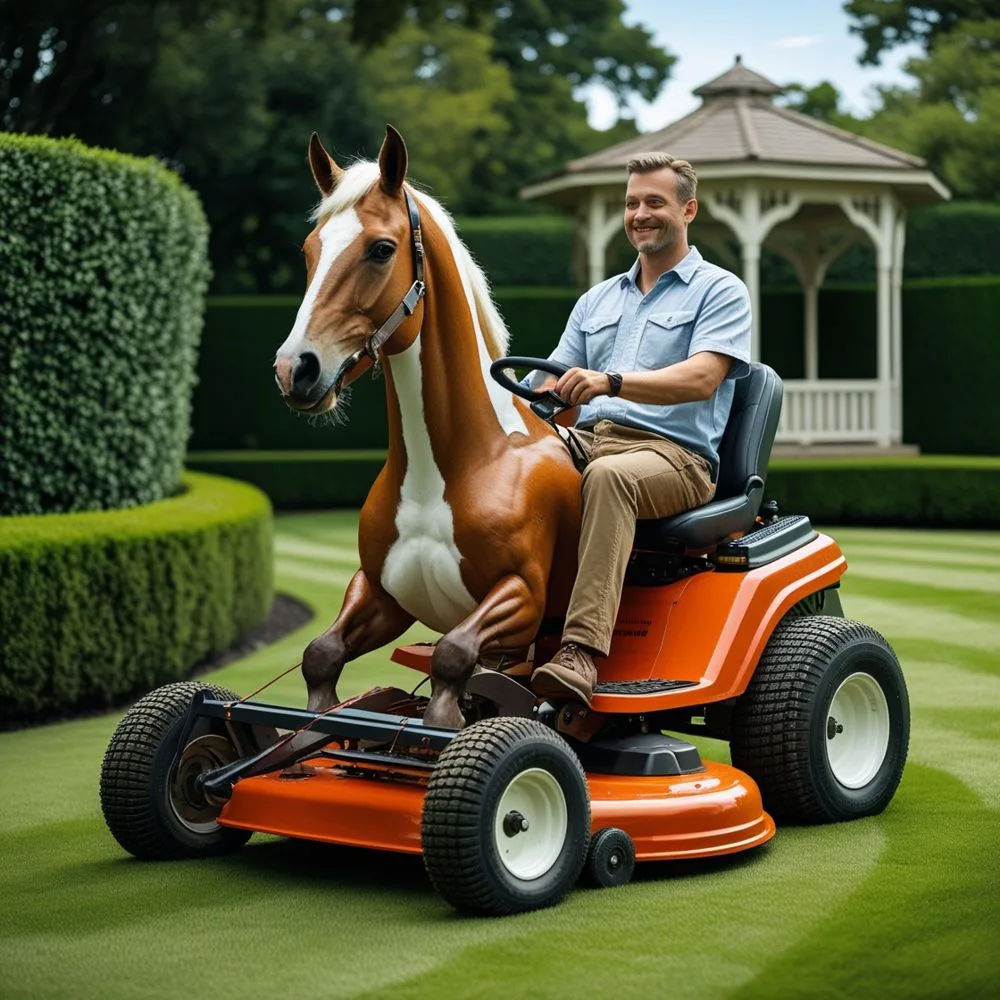In an era where sustainability and eco-conscious living are at the forefront of our minds, horse lawn mowers offer a unique and environmentally friendly solution for maintaining a pristine lawn. Unlike traditional gas-powered mowers that emit harmful fumes, horse lawn mowers rely on the natural grazing habits of horses to keep your grass trimmed. This innovative approach not only benefits the environment but also connects us to traditional, time-honored methods of land care. In this blog post, we’ll explore the world of horse lawn mowers, their benefits, how they work, and why they’re making a comeback in modern landscaping.
What Are Horse Lawn Mowers?
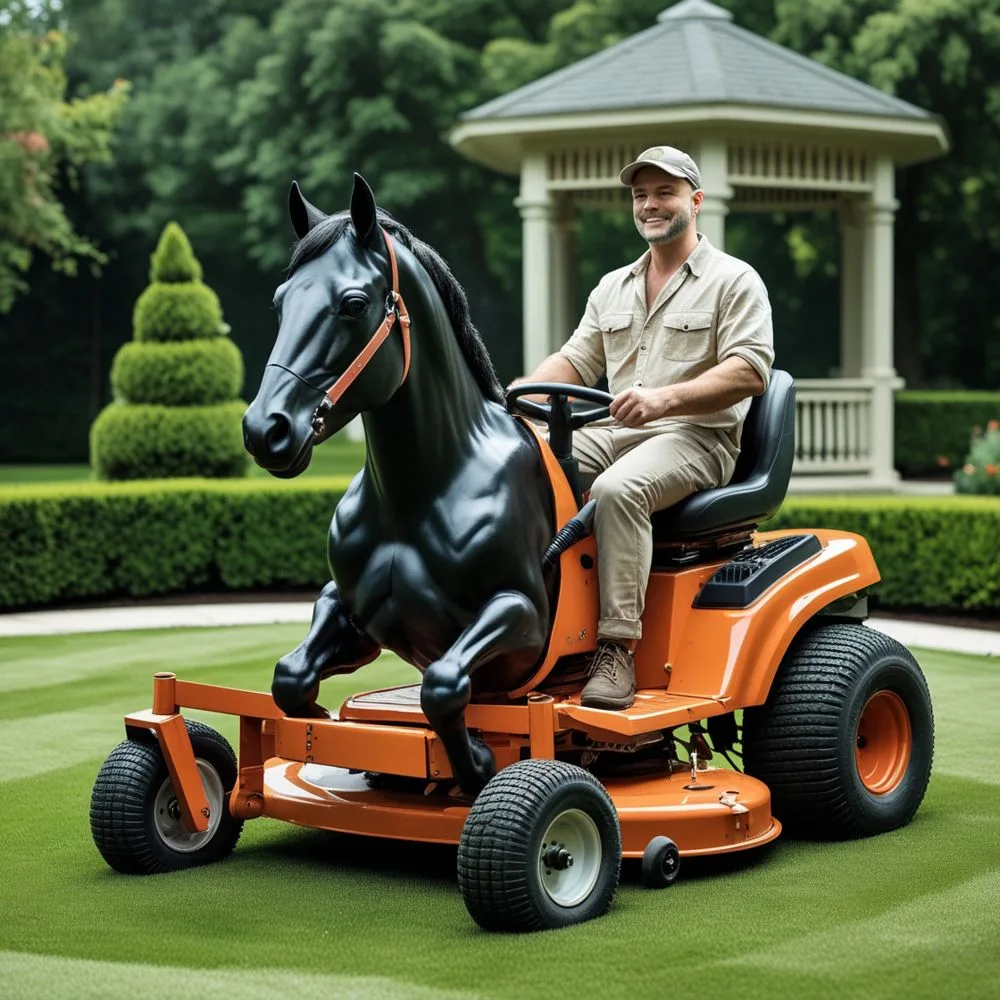
Horse lawn mowers refer to the practice of using horses to graze and naturally trim grass on lawns, fields, or large estates. This method leverages the natural behavior of horses, which are herbivores that consume grass as part of their diet. By allowing horses to graze in a controlled manner, property owners can maintain their lawns without relying on mechanical mowers, reducing both noise pollution and carbon emissions.
A Historical Perspective
The concept of horse lawn mowers isn’t new. Before the invention of motorized lawn mowers in the 19th century, horses and other grazing animals like sheep were commonly used to keep landscapes tidy. Large estates and public gardens often employed animals to maintain expansive lawns, a practice that was both practical and sustainable. Today, horse lawn mowers are experiencing a revival as people seek greener alternatives to conventional lawn care.
Why Choose Horse Lawn Mowers?
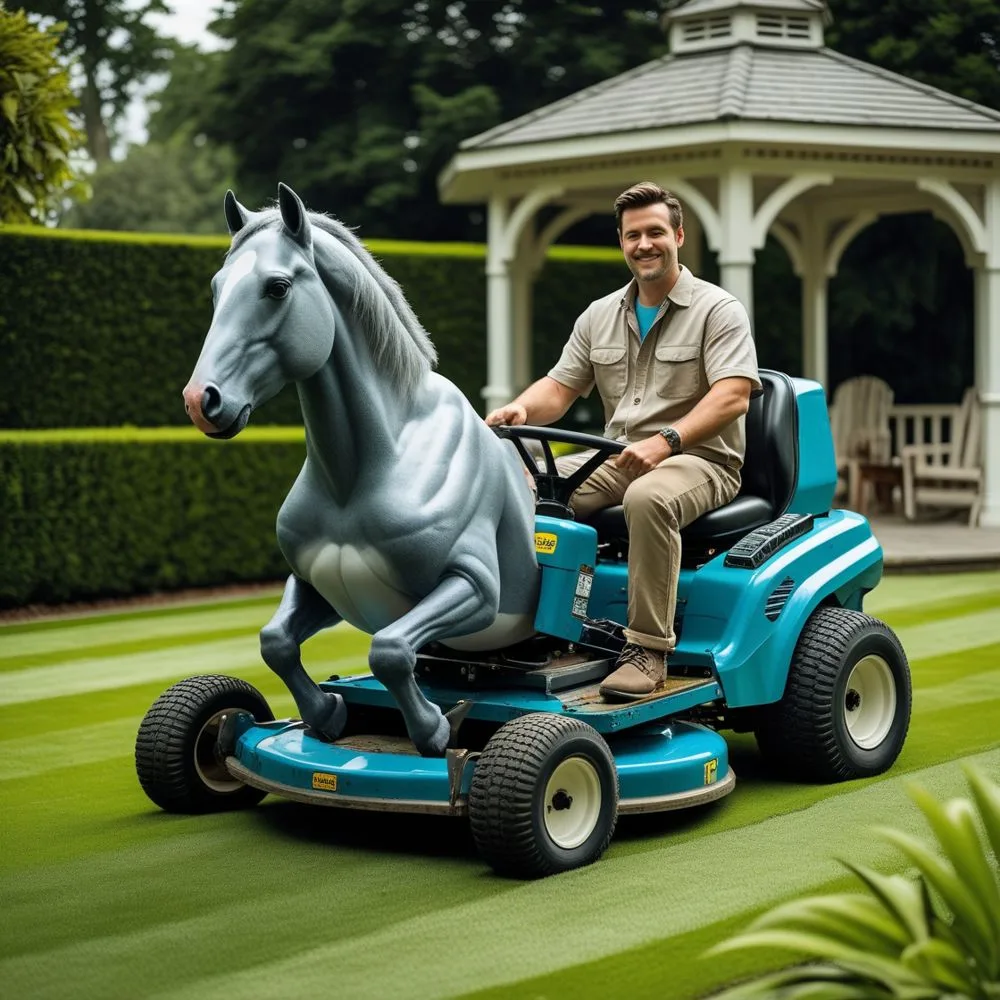
Using horse lawn mowers offers a range of benefits, from environmental advantages to cost savings and aesthetic appeal. Let’s dive into the key reasons why this method is gaining traction among eco-conscious homeowners and landscapers.
Environmental Benefits of Horse Lawn Mowers
One of the most compelling reasons to consider horse lawn mowers is their minimal environmental impact. Traditional gas-powered mowers contribute to air pollution, releasing carbon dioxide and other greenhouse gases. In contrast, horse lawn mowers produce zero emissions, making them an excellent choice for reducing your carbon footprint.
Reduced Noise Pollution
Gas-powered mowers are notoriously noisy, often disrupting the peace of neighborhoods and wildlife. Horses, on the other hand, mow silently, allowing you to maintain your lawn without disturbing your surroundings. This makes horse lawn mowers ideal for rural areas or properties near nature reserves where noise pollution is a concern.
Natural Fertilization
Horses don’t just mow your lawn—they also fertilize it naturally. Horse manure is a rich, organic fertilizer that enriches the soil, promoting healthier grass growth without the need for chemical additives. This natural cycle supports a sustainable ecosystem on your property.
Cost-Effective Lawn Maintenance
While the initial setup for horse lawn mowers may require investment (such as fencing or hiring a professional service), the long-term costs are often lower than maintaining gas-powered equipment. You won’t need to purchase fuel, replacement parts, or pay for frequent repairs. Additionally, horses can graze on a variety of terrains, reducing the need for specialized machinery for uneven or large landscapes.
Enhancing Biodiversity
Horse lawn mowers contribute to biodiversity by allowing for selective grazing. Unlike mechanical mowers that cut grass uniformly, horses graze selectively, leaving some plants untouched. This creates a more varied landscape that supports pollinators like bees and butterflies, fostering a healthier ecosystem.
How Do Horse Lawn Mowers Work?
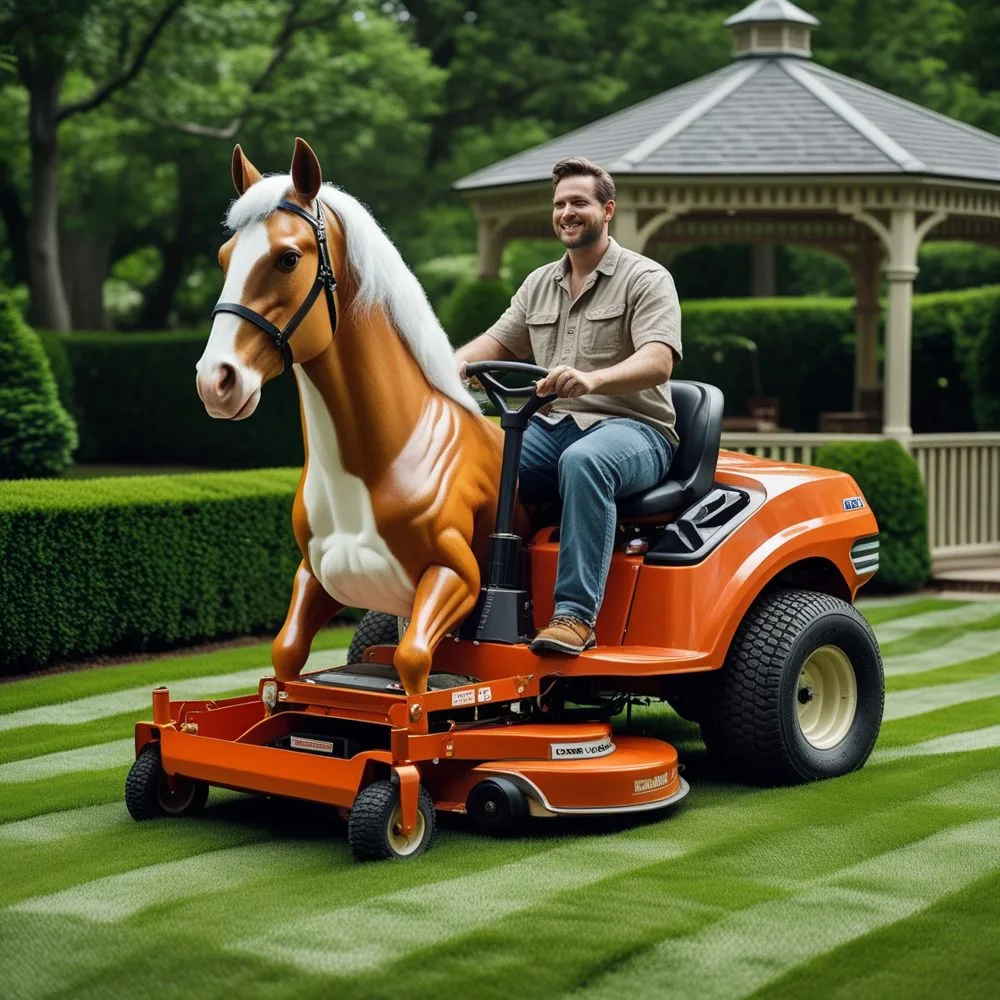
Implementing horse lawn mowers requires careful planning and consideration. Here’s a step-by-step guide to how this eco-friendly method works and how you can integrate it into your lawn care routine.
Step 1: Assess Your Property
Before introducing horses to your lawn, evaluate the size and condition of your property. Horse lawn mowers are best suited for larger areas, such as estates, farms, or community parks, where there’s enough grass to sustain grazing. Ensure your lawn is free of toxic plants or chemicals that could harm the horses.
Fencing and Safety
Install secure fencing to keep horses contained within the designated mowing area. Temporary or portable fencing can be used for smaller lawns, while permanent fencing may be necessary for larger properties. Ensure the area is safe, with no sharp objects or hazards that could injure the animals.
Step 2: Choose the Right Horses
Not all horses are suitable for lawn mowing. Smaller breeds, such as ponies or miniature horses, are often preferred for smaller lawns due to their lighter weight and lower grazing impact. Consult with a local farmer or equine expert to select horses that are healthy, well-trained, and accustomed to grazing.
Step 3: Manage Grazing Time
To achieve a well-mowed lawn, you’ll need to manage how long and where the horses graze. Overgrazing can damage the grass, so rotate the horses to different sections of the lawn to allow the grass to recover. A typical grazing session might last a few hours, depending on the size of the area and the number of horses.
Monitoring Grass Height
Horses naturally trim grass to a height of about 3 to 4 inches, which is ideal for a healthy lawn. Regularly check the grass height to ensure it’s not being overgrazed, and adjust the grazing schedule as needed.
Step 4: Maintain the Lawn
While horse lawn mowers handle most of the mowing, some maintenance is still required. Remove manure regularly to keep the lawn clean and prevent nutrient overload in certain areas. You may also need to reseed or aerate the lawn periodically to maintain its health.
Challenges of Using Horse Lawn Mowers
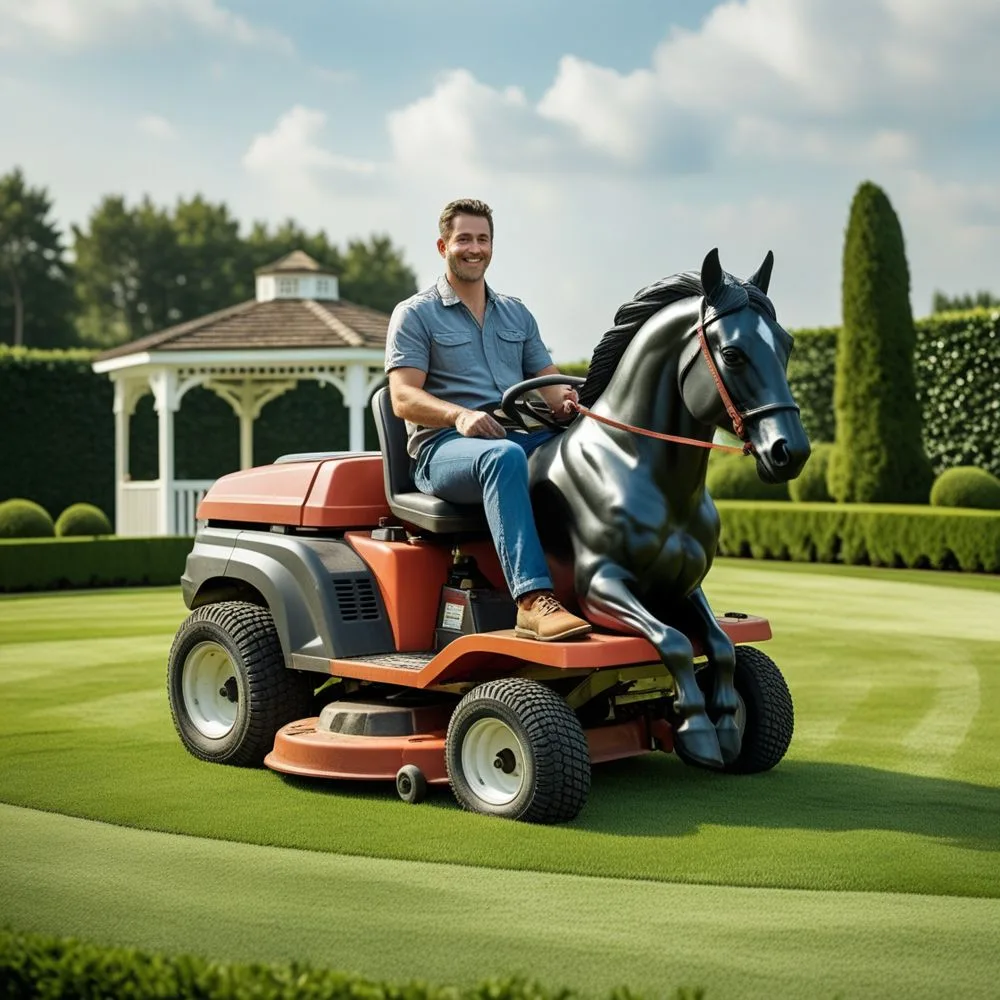
While horse lawn mowers offer numerous benefits, there are some challenges to consider before adopting this method.
Space Requirements
Horse lawn mowers are not practical for small suburban yards. They require ample space for grazing and movement, making them better suited for rural properties or large estates. If your lawn is small, consider alternative eco-friendly options like manual push mowers.
Time and Commitment
Using horses for lawn mowing requires time and effort to manage grazing schedules, fencing, and animal care. If you don’t own horses, you may need to hire a service or partner with a local farmer, which could involve additional coordination.
Weather Considerations
Horses may not be able to graze effectively during extreme weather conditions, such as heavy rain or drought. Wet conditions can lead to muddy lawns, while dry periods may reduce the availability of grass. Plan for alternative mowing methods during these times.
Horse Lawn Mowers vs. Traditional Mowers
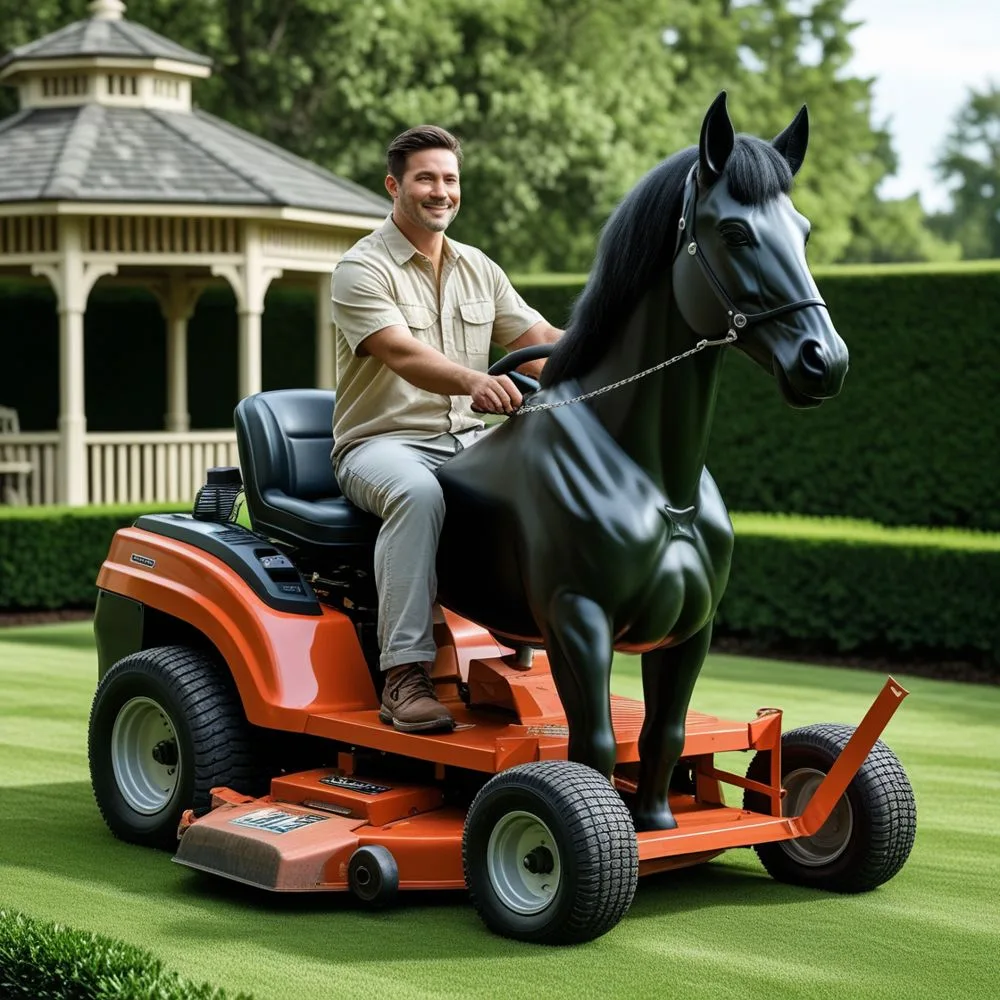
To help you decide if horse lawn mowers are right for you, let’s compare them to traditional gas-powered and electric mowers.
Gas-Powered Mowers
Gas-powered mowers are fast and efficient but come with significant drawbacks. They produce emissions, require regular maintenance, and can be costly to operate. Horse lawn mowers, while slower, eliminate these issues and offer a sustainable alternative.
Electric Mowers
Electric mowers are a step up from gas-powered models in terms of environmental impact, but they still rely on electricity, which may come from non-renewable sources. Horse lawn mowers are entirely renewable, relying solely on the natural grazing habits of horses.
Manual Push Mowers
Manual push mowers are eco-friendly and suitable for small lawns, but they require significant physical effort. Horse lawn mowers are better suited for larger areas where manual mowing would be impractical.
Getting Started with Horse Lawn Mowers
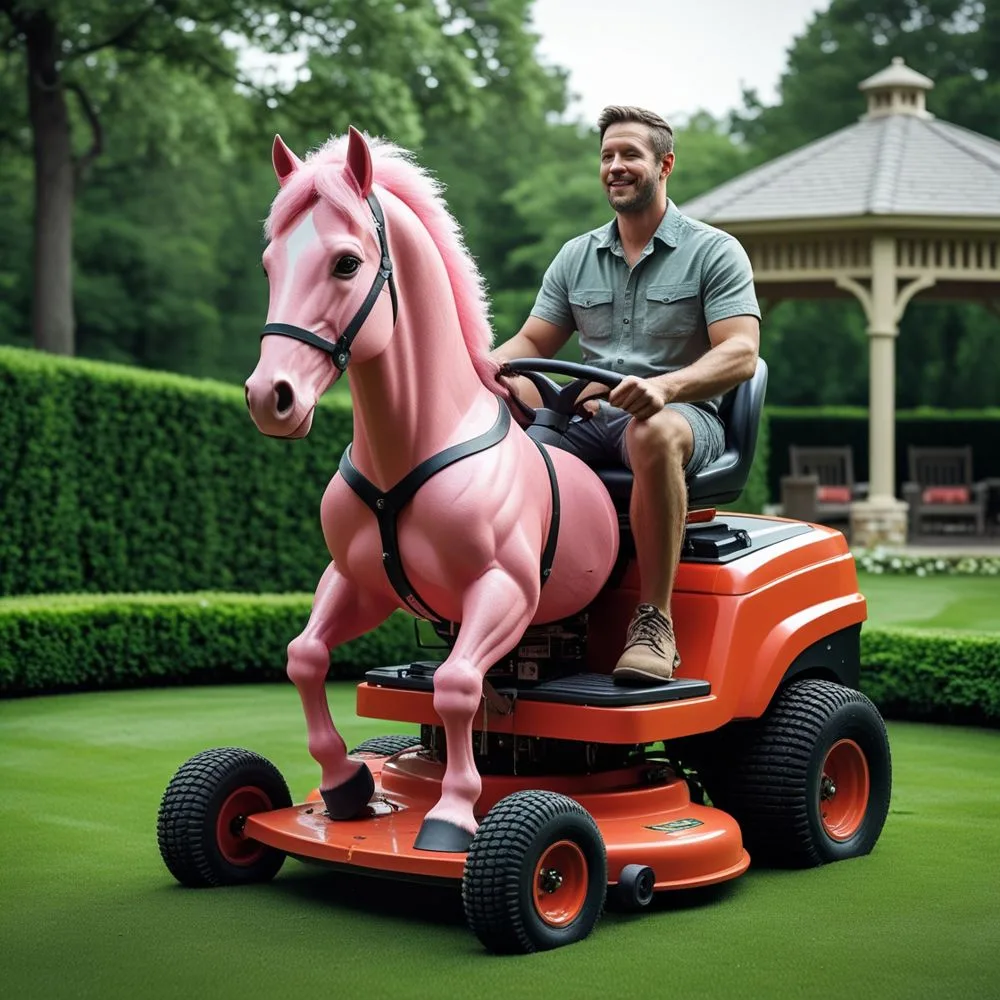
Ready to give horse lawn mowers a try? Here are some practical tips to get started.
Find a Local Partner
If you don’t own horses, reach out to local farmers, equestrian centers, or sustainable landscaping companies that offer horse lawn mowing services. They can provide the animals, equipment, and expertise needed to maintain your lawn.
Educate Yourself
Learn about horse care, grazing management, and lawn maintenance to ensure a successful experience. Books, online resources, and local agricultural extensions can provide valuable information on using horse lawn mowers effectively.
Start Small
If you’re new to horse lawn mowers, start with a small section of your property to test the process. Monitor the results and make adjustments before scaling up to larger areas.
The Future of Horse Lawn Mowers

As the demand for sustainable practices grows, horse-shaped lawn mowers are poised to become a popular choice for eco-conscious homeowners and landscapers. Advances in portable fencing and grazing management techniques are making this method more accessible than ever. Additionally, the rise of urban farming and community-supported agriculture is creating new opportunities for horse lawn mowers in public spaces like parks and community gardens.
A Return to Tradition
Horse mowers represent a return to traditional, low-impact land management practices. By embracing this method, we can honor the wisdom of the past while addressing the environmental challenges of the present.
Inspiring a Greener Future
By choosing horse mowers, you’re not just maintaining your lawn—you’re contributing to a greener, more sustainable future. This small act can inspire others in your community to adopt eco-friendly practices, creating a ripple effect of positive change.
Conclusion
Horse lawn mowers offer a unique and sustainable solution for maintaining a beautiful lawn while minimizing environmental impact. By harnessing the natural grazing habits of horses, you can reduce emissions, enrich your soil, and create a healthier ecosystem on your property. While there are challenges to consider, the benefits of horse lawn mowers—cost savings, biodiversity, and a connection to traditional practices—make them a compelling choice for eco-conscious homeowners. Whether you’re managing a large estate or a community park, horse lawn mowers provide an innovative way to care for your lawn and the planet. Ready to give it a try? Start small, partner with local experts, and discover the joy of sustainable lawn care with horse mowers.

